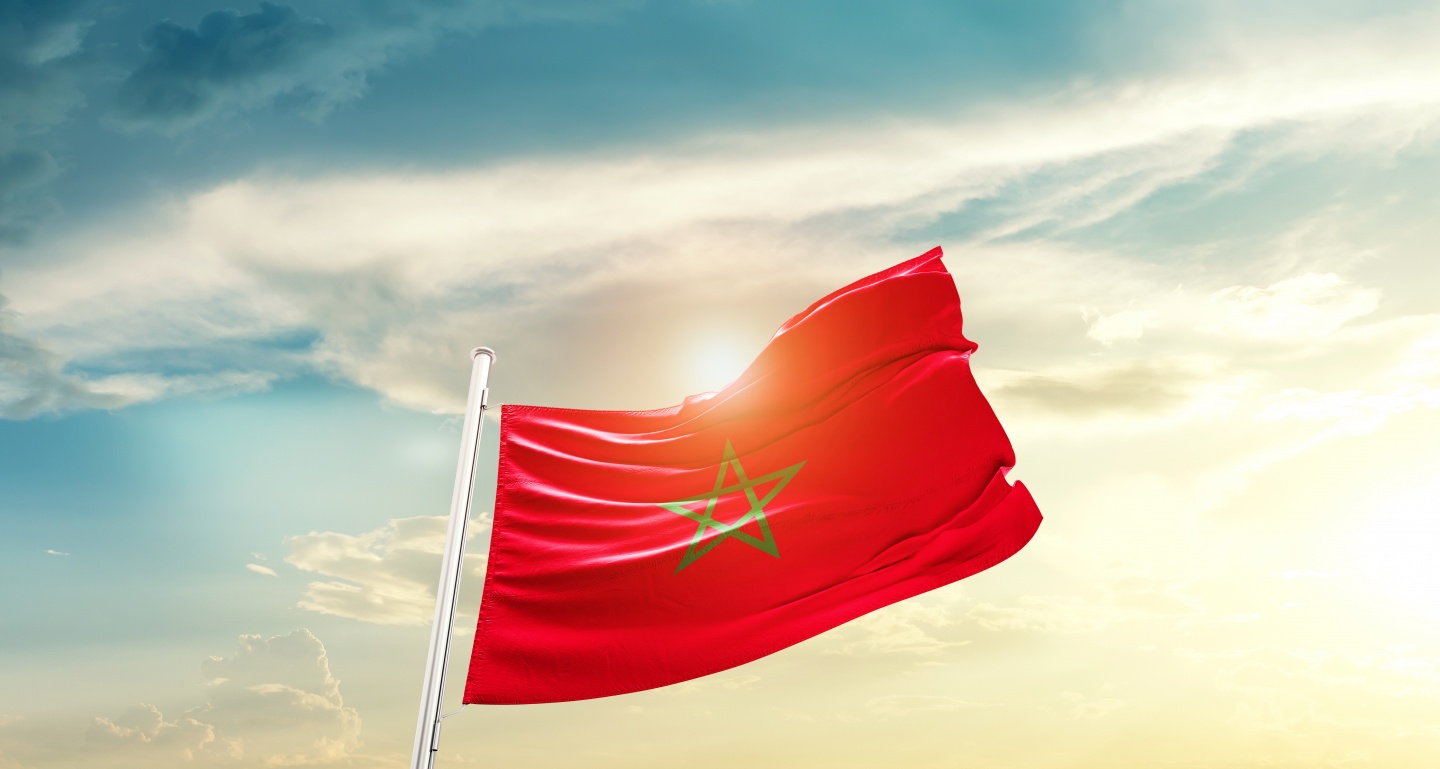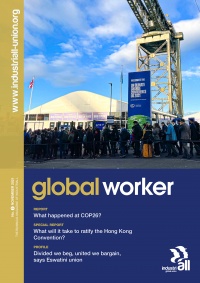10 February, 2022After elections in Morocco earlier this year, a new coalition government is in power. Trade unions had been actively protesting the policies of the former government led by the Islamist Justice and Development Party (PJD), in power for ten years.
The National Rally of Independents (RNI) coalition government that emerges will have to act based on the country's new development model, announced in May 2021. The New Development Model (NMD) “is designed by Moroccans, with Moroccans and for Moroccans”, and aims to curb the massive inequalities in the country.
This NMD vision for Morocco's future, was assigned by King Mohammed VI. It outlines goals, such as raising incomes, increasing private investment, taking better care of the country's natural resources, and increasing the number of women in the workforce, as well as societal objectives such as reducing underage marriage and increasing social inclusion.
The question now, is to what extent these recommendations can be implemented and, the political will of the government and all other institutions, like trade unions and civil society, to work together to successfully achieve the goals.
“We call on the new government to reverse the unpopular decisions and policies of the previous government, which harmed the purchasing power of citizens. We also demand that social dialogue is institutionalized, that the bills on strike and trade unions are reconsidered, that wages are improved, and that there is a discussion on the pension scheme,”
says Abdelmajid Matoual of FNTE – UMT and IndustriALL vice-president for the MENA region.
The Union Marocaine du Travail (UMT) and Confédération Démocratique du Travail (CDT), the national centres to which all of IndustriALL’s affiliates belong, gained a considerable number of seats in both the seats of Workers representatives*, as well as the second chamber of parliament this year. These developments are not significant changes from previous elections but consolidates workers’ influence in parliament.
The Moroccan trade union movement has for a long time worked on cementing a strong unified base which should be well-equipped to challenge the new government to build a free and socially just society.
The trade union movement is a central social force in Morocco. IndustriALL has affiliated unions in most manufacturing sectors, playing key roles in improving working conditions for the Moroccan working class.
Building union power in challenging circumstances
During the Arab Spring in 2010, most labour confederations in Morocco supported a new constitution. Although constitutional change was not achieved per se, unions successfully secured some benefits that they had been demanding for many years. At the time, union mobilization provided a unique opportunity for the Islamists and leftists to ally to pursue similar goals.
In April 2011, unions reached an agreement with the government that they would comply with ILO Conventions on respect of trade union rights and social dialogue. But despite the agreement, trade union rights are still frequently violated in Morocco.
The move towards unifying the Moroccan trade union movement started in 2000, fighting against challenging government policies aimed at severely weakening workers. In 2014 again, the union movement recognized that unity was the best way forward when it came to influencing public opinion and putting pressure on the government.
The three national centres, UMT, CDT and FDT, signed a joint statement in January 2014 condemning the abuse of union freedoms, factory closures, layoffs, and the arrest and prosecution of officials and trade union activists. The statement also addressed the government measures passing unfair financial laws against the interest of the working class, absence of social dialogue and collective bargaining, and ignoring unions as they passed a draft strike law.
In 2014, the government’s refusal to engage in social dialogue on fundamental issues facing workers pushed trade unions to their limits. Not being part of discussions on key issues like wages, working conditions, pensions and social compensation made it clear that more had to be done, given a decreasing purchasing power as utility and transport costs were increasing.
The government’s refusal to enter into dialogue, as had been agreed in 2011, with the unions on these core issues violated national labour legislation, as well as ILO standards. As a result, in October that year, Moroccan workers across the public and private sectors held a general strike organized by the three national centres UMT, CDT and FDT, protesting the government decision to exclude unions.
The Moroccan government were under pressure from international lenders to cut public spending and implement the anti-worker reforms to pensions and social provisions. But they received a strong, united message from the general strike organized by workers.
In 2019, CDT and UMT again called on the government to meet its social dialogue commitments, to institutionalize tripartite social dialogue, respect trade union rights and comply with ILO Conventions. The unions organized a series of protests and strike actions across the country, including marches, strikes and demonstrations.
When we fight, we win
The auto industry in Morocco has grown fast with the arrival of new players from across the world. With a workforce of over 135,000, the industry has recently become a primary export sector and plays a crucial role in the country’s development.
Unions struggle to organize in the special economic zones as employers try to keep them out and the government offers the unions no support. It was only after years of groundwork that UMT Kenitra leaders succeeded in organizing workers at Stellantis, a former Peugeot Citroën (PSA) factory in Kenitra.
The Covid-19 pandemic has hit the aerospace industry hard, and the crisis is expected to last. Companies are announcing extensive restructuring, including laying off thousands of workers worldwide. According to Moroccan labour law, employers must pay employees a compensation in case of redundancies on economic grounds. Yet in most cases the companies get away with paying nothing. In companies where workers are organized, unions are fighting back and have successfully negotiated alternative solutions to significantly reduce the number of dismissals. SNIME-CDT and UMT have reported that planned redundancies have been reduced and socially responsible solutions were found.
To consolidate power in the metal sectors, SNIME-CDT has gone through a restructuring process and elected a new leadership in 2018. UMT is progressing the work towards establishing a national metal union.
Moroccan mining unions have prioritized combating precarious work and improving health and safety in the industry. Phosphate, also known as white gold, is key to Morocco’s economy as the country has more than 70 per cent of the world’s estimated reserves. SNTP- CDT reports that through successful collective bargaining, 2,400 outsourced workers have been made permanent in recent years.
In December 2020, 100 mine workers affiliated UMT held a strike 700 metres underground in the Jebel Aouam mine. Another 200 workers protested above ground, condemning the company’s violation of their health and safety.
“We have suffered a lack of social dialogue at the national level for many years. The CDT recently sent a letter to the government requesting dialogue on urgent issues in the energy sector and asking the government to reconsider the finance law prepared by the previous government. We are still waiting for a response,”
says Salah Kandil, general secertary of Syndicat National d'Energie et des Mines - SNEM– CDT.
In 2016, a Moroccan court ordered the SAMIR oil refinery to be liquidated. The decision affected 1,000 workers, as well as the livelihoods of around 5,000 people dependent on the country’s only refinery. IndustriALL affiliate, SNIPGN-CDT called on the government to act immediately to end the impasse surrounding the SAMIR oil refinery, which had stopped production in August 2015 after being unable to pay a US$1.3 billion debt to the Moroccan tax authorities.
The government was urged to protect workers’ jobs and do everything in its power to get the refinery up and running again. To date, all attempts to sell the refinery have failed.
FNTPGPA – UMT is engaged with several multinational companies in the oil and gas sector to discuss the challenges and impact of the energy transition and guarantee a Just Transition where workers’ benefits and rights are respected.
In the chemical sector, 500 employees from Veolia’s Moroccan subsidiary Amanor were stopped from receiving state aid during the Covid-19 pandemic in 2020. The company refused to register the workers with the national social security office. The workers were unionized through Union Marocaine du Travail (UMT) and covered by a collective bargaining agreement that the company had already violated by failing to pay benefits and firing workers asking for their unpaid benefits.
A landmark victory was achieved in February 2021, as the year-long strike ended and a roadmap for a new relationship between workers and management at Amanor was defined.
Eleven workers dismissed during the conflict were reinstated and operations were to restart free from discrimination. According to the roadmap agreement, the process will be monitored by Veolia and IndustriALL. And in July a new CBA was signed.
FNTE-UMT represents workers in the production, distribution and transmission of electricity. In 2014, authorities issued a decision to privatize electricity distribution in the Casablanca region and ignored consultations with FNTE-UMT about the impact on workers.The union responded by launching a number of strikes and protests actions in defense of workers' interests.
According to the FNTE-UMT, the government's project to restructure the sector and give autonomy to the regions will dismantle the sector and open the door to privatization. The union insists on a genuine dialogue with authorities on the professional and social impact on workers.
The textile and garment industry has been expanding as global brands are coming into the country. The sector is the second largest export sector and employs hundreds of thousands of workers.
In 2021, 28 workers were killed when a clandestine garment factory in Tangiers was flooded by rainwater. UMT and CDT held authorities and employers responsible for this avoidable tragedy, saying that there is a general acceptance of the exploitation of workers and violations of working conditions in order to accumulate wealth in Morocco.
IndustriALL affiliates from UMT and CDT are organizing, building and consolidating sectorial unions and improving health and safety and monitoring implementation of global framework agreements. Over the past few years both UMT and CDT textile unions have organized new members, improved social dialogue and achieved significant structural improvements within the union.

